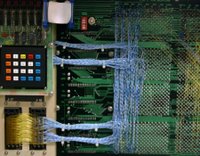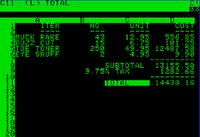 What would a retro computing fan do if he or she had all the money in the world? Well, Paul Allen (billionaire and Microsoft co-founder) has created an organization, PDP Planet, and a project to restore one of his favorite vintage computers, the DEC PDP-10.
What would a retro computing fan do if he or she had all the money in the world? Well, Paul Allen (billionaire and Microsoft co-founder) has created an organization, PDP Planet, and a project to restore one of his favorite vintage computers, the DEC PDP-10.In fact, he has a whole collection of vintage DEC and other minicomputers. You see, in the early days of Microsoft, Paul and his buddy Bill Gates did all of their development work on minis, and despite the fact that the world is now dominated by Microsoft operating systems, they still have fond recollections of these old systems.
According to Paul, PDP Planet "fulfills my hope that the achievements of early computer engineers aren't lost to time. I wanted to provide a Web site and repository that recognized the efforts of those creative engineers who made some of the early breakthroughs in interactive computing that changed the world."
Check out the progress of his PDP-10 restoration, and get yourself an actual user ID on one of his personal PDP-10's running Tops-10. You can write and run your own programs from the internet on the actual vintage hardware. You'll be the hit of your next geek party when you show off your new program running on Paul's "personal computer"!
